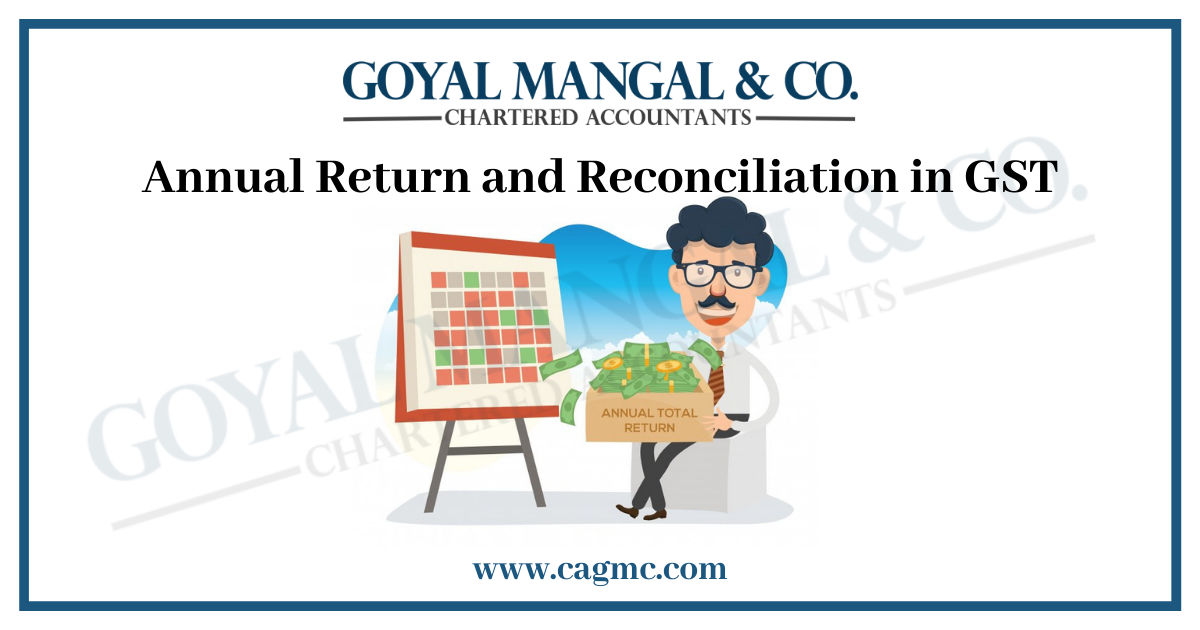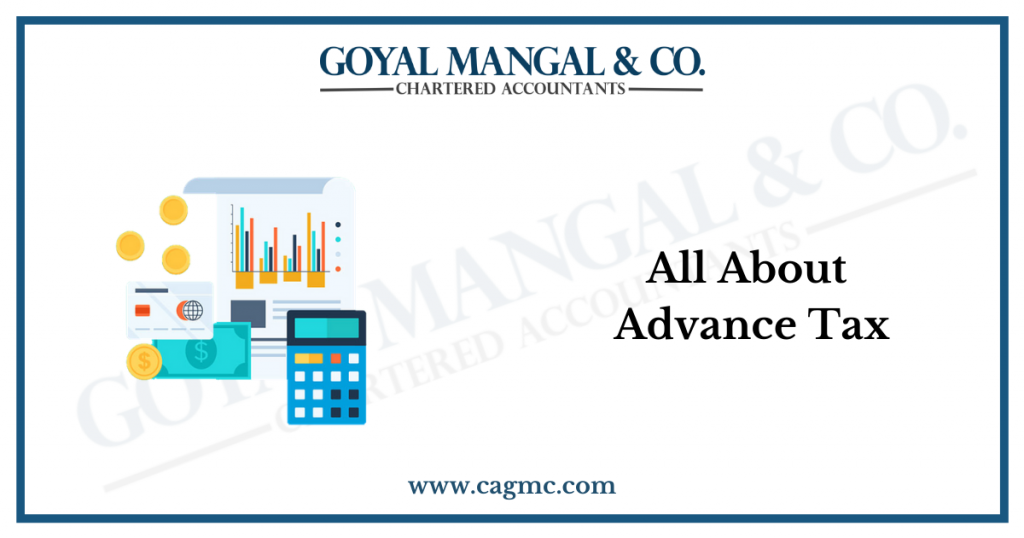
All the taxpayers registered under GST Regime are required to file monthly/quarterly returns as per applicability. In addition to that they also need to file annual return in Form 9C. This return form was also accompanied by an audited reconciliation statement. However, with a view to simplify things and make compliances easier some amendments are introduced with regards to this. So, let us see the topic of Annual Return and Reconciliation in GST.
|
Table of Contents |
Meaning of Annual Return
- The Annual GST Return is a summary of the monthly/quarterly returns filed by a taxable person. It is basically a compilation of all the transactions entered into during the year and were reported in periodical returns.
- In case any adjustments are made to the data of previous year then same are also reported in annual return
- A registered person, whether a supplier of goods or services or both is required to file the return.
- Every registered person shall furnish an annual return for every financial year electronicallyon or before the thirty-first day of December following the end of such financial year.
Concept of Reconciliation in GST
Value of supplies as it appears in the audited financial statements differs from the value appearing in GSTR returns. So, it is required to reconcile both. A reconciliation statement is required to be submitted along with annual return by a registered person
- The difference between GSTR 2A and books of accounts should be reconciled. GSTR 2A contains details of inputs on the basis of returns filed by suppliers.
- There might be difference in data of GSTR1 and GSTR 3B
- The difference in GSTR 2B and one’s books of accounts should also be reconciled.
Changes in Annual Return and Reconciliation in GST
Section 110 and 111 of Finance Act, 2021 brought some changes in the CGST Act, 2017. These sections amended Section 35(5) and Section 44 of the CGST Act, 2017. The following changes were introduced in these sections.
Amendments regarding Annual Return
Following are the amendments with regards to Annual Return
- The registered person whose aggregate turnover in a Financial Year is uptoRs.2 crores, is exempted from filing annual GST Return. Also the reconciliation statement can be self-certified and submitted
- Rule 80 of CGST Rules, 2017 is also substituted with effect from 01.08.2021
- All specified persons should file the annual return before 31st December after the end of relevant financial year. Annual Return has to be filed in GSTR-9
- Annual return can be filed online on GST Portal or through notified Facilitation Centre.
- Based on the category, persons are required to file annual return in following forms-
Category of Registered Person Form Applicable Composition Dealers Form GSTR 9A E-Commerce Operators Form GSTR 9B All other registered persons(other than specifically exempt) Form GSTR 9
- Persons whose aggregate turnover exceeds Rs.5 crores in the previous financial year should file reconciliation statement. The statement can be self-certified. The statement should be filed in form GSTR-9C
Amendments regarding Reconciliation
Section 35(5) This section was omitted as per provisions of Section 110 and 111 of the Finance Act, 2021. As per this section, any person whose turnover during a financial year was more than Rs.2 crores should get accounts audited by a chartered accountant or a cost accountant. Along with audited accounts, companies were required to submit a reconciliation statement and other prescribed statements as per Section 44.
Section 44- The provisions of this sections is also amended. As per new provisions it is allowed to furnish a self-certification with regards to reconciliation. Following class of persons are extended the benefit of this new amendment
- Input Service Distributor
- A person paying tax under Section 51 or 52.
- Casual taxable person
- Non-resident taxable person
- All registered person other than specifically exempt
These provisions will not be applicable on Departments of Central and State Government, whose accounts are to be audited by Comptroller and Auditor General of India.
The reconciliation statement was earlier submitted under Form GSTR-9C with a certification from a Chartered Accountant or a Cost Accountant in practice
Effect of Amendments
The most obvious effects of amendment are as follows:-
- The certification of a practicing chartered accountant/ cost accountant is no more required on the reconciliation statement
- The registered persons can file reconciliation statement with a self-certification.
- Those with annual aggregate turnover up to Rs.2 crores need not file the annual return.
- Filing of reconciliation statement is also optional for registered persons with an annual aggregate turnover less than Rs.5 crores.
The effective date of amendment is 01.08.2021 for these notifications. These amendments are announced in Notifications-29, 30 &31 dated 30.07.2021 by CBIC. Although government has exempted the requirement of Annual return for small registered persons and made reconciliation statement optional for all having turnover less than Rs.5 crores. Still it is advisable for the taxpayers to prepare the record. This will help in case of audits etc
Conclusion
From above discussion we can conclude that these amendments are aimed for simplifying compliances for taxpayers. The move of allowing self-certification on reconciliation statements shows that government is transferring the responsibility from professionals to registered persons. The amendments are effective from 01.08.2021 and applicable from FY 2020-2021. So, these are the latest amendments with regards to Annual Return and Reconciliation in GST. However, with exemptions also registered persons should keep all records in place to help in Departmental audits or notices served by GST Department


